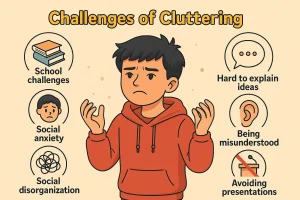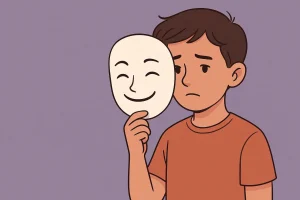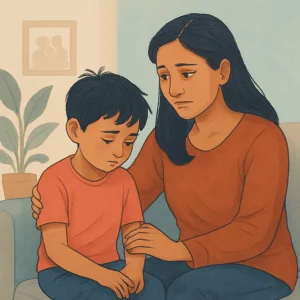WH Questions Flashcards for Kids: Fun Learning at Home
By Rajini D
Last Updated: February 6, 2025
Looking for a fun way to enhance your child’s language skills at home? WH questions flashcards are an excellent tool. These flashcards cover essential “who,” “what,” “where,” “when,” and “why,” queries, fundamental to daily communication. They not only expand vocabulary but also boost comprehension, encouraging curiosity and critical thinking. By incorporating these into daily learning, you turn routine study time into an exciting educational experience. Let’s dive into how these flashcards can be a game-changer in your child’s learning journey!
Understanding WH Questions Flashcards
WH questions are a staple in language development, teaching children the basics of information gathering and communication. These questions include:
- Who – asks about a person
- What – inquires about an object or concept
- Where – seeks the location
- When – queries about time
- Why – explores reasons behind an action or event
Using flashcards to teach these concepts can be incredibly beneficial. Here’s why:
- Visual Learning: Flashcards provide a visual cue that can help children connect words with images or concepts, reinforcing memory.
- Engagement: The physical act of flipping a card can make learning more interactive and exciting compared to traditional learning methods.
- Versatility: These cards can be used in various games and activities, keeping the learning process fresh and adaptable to different learning styles.
- Focus: Flashcards encourage concentration on one item at a time, which can be particularly helpful for young learners who can easily be overwhelmed by too much information.
- Repetition: The ability to go through the flashcards multiple times helps reinforce learning through repetition, a proven method in educational psychology.
Examples of Each Type of WH Question Flashcard
Exploring the world through questions is a fantastic way for kids to learn. WH questions flashcards are a brilliant tool in this journey, making learning both fun and effective. Here are some examples of how each type of WH question can be presented on a flashcard:
- Who: A flashcard might show a picture of a doctor with the question, “Who is this?” This prompts children to connect professions with their roles in society, enhancing their social understanding.
- What: Consider a card displaying a colorful ball and asking, “What is this called?” It’s a simple way to build vocabulary and help children name everyday objects.
- Where: A scene depicting a playground could be accompanied by the question, “Where is this?” This helps children learn to describe locations and familiarize themselves with different settings.
- When: An image showing people eating dinner might ask, “When do we do this?” This teaches kids about routine and time-related concepts.
- Why: A flashcard showing a snowy scene with people wearing warm clothing could ask, “Why do we wear coats in winter?” This encourages children to think about cause and effect and understand the reasons behind actions.
How to Use WH Questions Flashcards for Home Learning
| Step | Action | Tips for Engagement |
|---|---|---|
| 1. Introduce the Concept | Start by explaining what WH questions are and why they are important. Show examples of each type using flashcards. | Keep explanations brief and use examples that are relevant to the child’s daily life to spark interest. |
| 2. Demonstrate | Show how to answer a question using a flashcard. For example, pick a “Who” card and explain the answer. | Use animated expressions and voice modulation to make the demonstration lively and engaging. |
| 3. Interactive Practice | Let the child pick a card and come up with an answer. Help them think it through if they get stuck. | Encourage them to ask questions back to you using the flashcard as a prompt, turning it into a game. |
| 4. Regular Sessions | Incorporate flashcards into regular learning sessions, dedicating time to each type of WH question. | Create a consistent routine but keep the sessions short to maintain the child’s attention. |
| 5. Progression | Gradually increase the difficulty of the questions as the child becomes more comfortable with simpler ones. | Challenge them with scenarios where they have to use multiple WH questions together, building deeper understanding. |
| 6. Review and Reinforce | Regularly revisit old flashcards to reinforce the learning and ensure retention. | Use the flashcards as part of a storytelling activity, where the child has to use questions from the cards to build a story. |
Why Use This Method?
Using WH questions flashcards in this structured way helps children not only learn how to use these questions but also understand their context in everyday communication. By turning learning into an interactive and enjoyable activity, children are more likely to engage with the material and retain the information. Plus, this method ensures that they are not just memorizing answers but are understanding and applying the concepts.
Fun Flashcard Games and Activities
Transforming learning into play is a surefire way to capture the attention of young minds. Using WH questions flashcards doesn’t have to be a routine drill. Here are some interactive games and activities that make learning with flashcards an adventure for kids:
Flashcard Treasure Hunt
Create a treasure hunt using WH questions flashcards as clues. Hide flashcards around your home or yard and write clues on them that lead to the next card. Each clue should use one of the WH questions, like “Where you find your favorite snacks” leading them to the next card hidden in the kitchen. This game not only makes learning fun but also physically active.
Matching Games
Set up a matching game by creating pairs of flashcards that answer each other. For instance, one card might ask, “Who bakes cookies?” and the corresponding card would show a picture of a baker or a parent. Spread the cards face down, and let your child turn them over two at a time, trying to match the question to the correct answer. This enhances both their memory and understanding of how to apply WH questions contextually.
Create Your Own Questions
Encourage your child to use the flashcards to form their own questions. You can do this by using picture cards without text as prompts. For instance, show a picture of a beach and ask your child to think of a question for each type of WH question card. For “What?”, they might ask, “What do you do at the beach?” This activity helps children understand how to formulate questions based on different WH prompts, boosting their creativity and command of language.
Role-Playing
Turn the flashcards into role-playing prompts. Pick a card, read the question, and then both of you act out the answer. For example, if the card says, “Why do we use an umbrella?”, one can pretend to be walking in the rain, and the other can explain. This not only helps in understanding the application of the question and answer but also in building social and emotional skills.
Story Building
Use the WH questions flashcards to build stories. Pick a sequence of cards, and let your child create a story that answers each question. This can be a solo activity or a fun family storytelling session, where each member adds to the story based on the card they draw.
Choosing the Right WH Questions Flashcards
Selecting the perfect set of WH questions flashcards for your child can significantly enhance their learning experience. Here’s how to choose the right flashcards tailored to different age groups and learning stages, ensuring the cards are not only educational but also engaging.
Consider the Child’s Age and Learning Stage
The age and learning stage of your child are crucial when selecting flashcards. For younger children, ages 3 to 5, look for flashcards with big, colorful pictures and fewer words. This visual appeal can help hold their attention and foster understanding of basic concepts. Older children, ages 6 and above, can handle more complex cards with additional text and more abstract concepts, such as “Why do we need to recycle?” or “How does the weather change?”
Features to Look for in Quality Educational Flashcards
When choosing WH questions flashcards, there are several features to consider that can make a significant difference in how effectively they aid in learning:
- Visuals: High-quality images that clearly illustrate the question can make the learning process intuitive and help children make associations between words and their meanings.
- Durability: Flashcards should be made of sturdy material that can withstand regular handling, especially for younger children who may be harder on learning materials.
- Content Relevance: The questions should be appropriate for the child’s developmental level and should be able to spark interest and curiosity.
- Cultural Diversity: Cards that include a variety of cultural contexts can broaden a child’s understanding and acceptance of different perspectives.
- Clear Typography: Choose flashcards with easy-to-read fonts, especially for children who are just starting to recognize letters and words.
Engaging Content
Ensure the content on the flashcards is engaging. This might include fun facts, interesting questions, or common scenarios that children encounter in their daily lives. Engaging content not only holds the child’s attention but also enhances their eagerness to learn and ask questions.
Wellness Hub: Your Partner in Educational Tools
At Wellness Hub, we understand the importance of quality educational tools. Our WH questions flashcards are designed with your child’s developmental needs in mind, incorporating all these features to ensure they provide valuable learning experiences. Check out our range of flashcards here, tailored for various age groups and learning stages.
Choosing the right flashcards for your child can transform a basic learning activity into an exciting exploration of language and understanding. With the right set of cards, you can help your child build a strong foundation for critical thinking and communication skills that will benefit them for years to come.
Resources for WH Questions Flashcards
Finding the right resources for WH questions flashcards can be as simple as knowing where to look. Whether you prefer to buy them ready-made or download and print them at home, there are plenty of options available to suit your needs. Here’s where you can find effective WH questions flashcards for enhancing your child’s learning at home.
Downloadable Options
For those who prefer a customizable option, Wellness Hub offers downloadable WH questions flashcards. These can be printed right from the comfort of your home, allowing for instant access and the ability to print as many sets as needed. Our flashcards are designed with both quality and educational effectiveness in mind, ensuring that they are not only visually appealing but also pedagogically sound.
Conclusion
Ready to boost your child’s learning? Visit Wellness Hub for the best educational tools! Our WH questions flashcards and other resources make learning fun and effective. Perfect for kids of all ages, they’re designed to inspire and educate. Start enhancing your child’s education today by exploring our exciting range of products. Join our community and support your child’s journey to better communication and understanding. Discover how our tools can make education a memorable adventure for your family. Let’s make learning enjoyable together with Wellness Hub!
Frequently Asked Questions:
1. What are WH questions flashcards?
WH questions flashcards are educational tools that help children learn how to ask and answer basic questions like who, what, where, when, why, and how, which are essential for language development.
2. How can WH questions flashcards benefit my child?
These flashcards enhance vocabulary, improve understanding of question structures, and encourage critical thinking and curiosity.
3. At what age should I start using WH questions flashcards with my child?
You can start as early as preschool, around age 3, when your child begins to communicate more clearly and show curiosity about the world.
4. Where can I find WH questions flashcards for kids?
WH questions flashcards are available at educational stores, online platforms, or directly from our website at Wellness Hub.
5. Can WH questions flashcards be used at home?
Absolutely! These flashcards are designed for home use, making learning engaging and effective right from your living room.
6. How often should I practice WH questions with my child using flashcards?
A short, fun session a few times a week is a great way to build skills without overwhelming them.
7. What should I do if my child finds a question difficult to answer?
Encourage them by helping break down the question, give hints, and turn it into a learning moment without pressure.
8. Are there digital WH questions flashcards available?
Yes, Wellness Hub offers downloadable flashcards that you can print or use digitally, providing flexibility in how you teach.
9. Can WH questions flashcards be used in group settings, like playgroups?
Yes, these flashcards are perfect for group activities, encouraging social learning and interaction among children.
10. How do I keep my child engaged with WH questions flashcards?
Try turning the session into a game, like a treasure hunt or matching game, to keep the learning process exciting and interactive.
About the Author:
Rajini Darugupally
M.Sc., Speech-Language Pathologist (9+ years of experience)
Rajini is a passionate and dedicated Speech-Language Pathologist with over 9+ years of experience, specializing in both developmental speech and language disorders in children and rehabilitation in adults. Driven by a desire to empower each individual to find their voice, Rajini brings a wealth of experience and a warm, genuine approach to therapy. Currently, at Wellness Hub, she thrives in a team environment that values innovation, compassion, and achieving results for their clients.
Book your Free Consultation Today
Parent/Caregiver Info:
Client’s Details:
* Error Message









